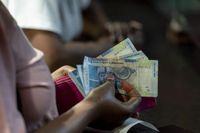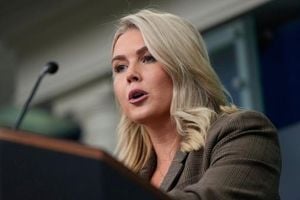South Africa's political landscape is facing a significant challenge as the Democratic Alliance (DA) has publicly criticized the African National Congress (ANC) for its refusal to compromise on economic policy management. This impasse has led to escalating tensions between the two leading parties in the coalition government, raising concerns about the stability of the national unity government.
On March 28, 2025, the rand weakened, trading at 18.3975 against the dollar, approximately 0.8% lower than its previous close. This decline comes amid growing worries over U.S. tariffs and the ongoing deadlock over the state budget, which has yet to be passed. The DA has been particularly vocal about the ANC's reluctance to share control of economic policy, a situation that could jeopardize the coalition's future.
According to a report from News24, the ANC rejected a proposal from the DA that aimed to establish a shared management framework for economic policy. This rejection has been characterized as a significant setback, with an unidentified DA negotiator warning that it could lead to the collapse of the government of national unity.
The ongoing budget standoff has been exacerbated by the ANC and DA's disagreement over a proposed Value Added Tax (VAT) hike, which has been a contentious issue for weeks. The DA has made it clear that its support for the national budget is contingent upon reaching an agreement on economic policy management, a stance that further complicates the negotiations.
As the political deadlock continues, market reactions reflect the uncertainty surrounding South Africa's economic outlook. Safe-haven gold prices reached a record high on March 28, driven by global market volatility and concerns about a potential trade war stemming from U.S. President Donald Trump's recent tariff announcements.
The tariffs, which are set to take effect on April 3, 2025, have added to the unease in South Africa's financial markets. Investors are closely monitoring the situation, as the combination of domestic political strife and international trade tensions could have far-reaching implications for the country's economy.
In summary, the DA's criticism of the ANC's unwillingness to compromise on economic policy highlights the fragility of South Africa's coalition government. With the rand under pressure and the national budget still unresolved, the coming days will be crucial in determining whether the parties can find common ground or if the government of national unity will face an imminent collapse.






